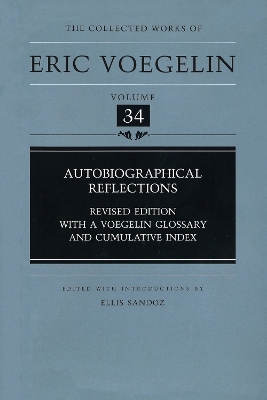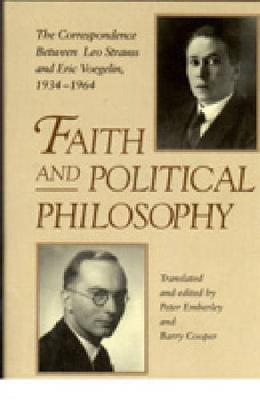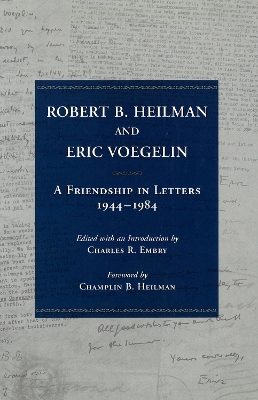Eric Voegelin Institute Series in Political Philosophy
3 total works
The thirty-fourth volume of The Collected Works of Eric Voegelin consists of Voegelin's Autobiographical Reflections, reprinted from the 1989 edition with additional annotations; a glossary of terms used in Voegelin's writings, illustrated with examples from throughout the Collected Works; a volume index; and a cumulative index. The last covers the entire edition, apart from The History of Political Ideas, which has its own index, and volumes 29 and 30, the Selected Correspondence, which are at present not published. The glossary lists, defines, and illustrates from the author's writings many of the key terms employed, paying particular attention to the Greek terms. The cumulative index supplies a more comprehensive access to the contents of the entire Collected Works. Together, the glossary and index systematically include names, subjects, ideas, writings, and terms, making this culminating volume an indispensable help for any serious study of Eric Voegelin's oeuvre.
Leo Strauss and Eric Voegelin were political theorists of the first rank whose impact on the study of political science in North America has been profound. A study of their writings is one of the most expeditious ways to explore the core of political science; comparing and contrasting the positions both theorists have taken in assessing that core provides a comprehensive appreciation of the main options of the Western tradition.In fifty-three recently discovered letters, Strauss and Voegelin explore the nature of their similarities and differences, offering trenchant observations about one another's work, about the state of the discipline, and about the influences working on them. The correspondence fleshes out many assumptions made in their published writings, often with a frankness and directness that removes all vestiges of ambiguity. Included with the correspondence are four pivotal re-published essays "Jerusalem and Athens: Some Preliminary Reflections" (Strauss), "The Gospel and Culture" (Voegelin), "Immortality: Experience and Symbol" (Voegelin), and "The Mutual Influence of Theology and Philosophy" (Strauss) and commentaries by James L. Wiser, Hans-Georg Gadamer, Stanley Rosen, Thomas J. J. Altizer, Timothy Fuller, Ellis Sandoz, Thomas L. Pangle, and David Walsh."
Robert B. Heilman and Eric Voegelin
by Eric Voegelin and Robert Bechtold Heilman
Published 26 March 2004
This collection of letters exchanged between Robert B. Heilman and Eric Voegelin records a friendship that lasted more than forty years. These scholars, both giants in their own fields, shared news of family and events, academic gossip, personal and professional vicissitudes, academic successes, and, most important, ideas. Heilman and Voegelin first became acquainted around 1942, when Voegelin delivered a guest lecture for the political science department at Louisiana State University. At that time, Heilman was teaching in the English department at LSU along with Robert Penn Warren and Cleanth Brooks. What started as simple exchanges soon grew into full-fledged correspondence - beginning with an eight-page letter by Voegelin commenting on Heilman's manuscript on Shakespeare's King Lear. Their correspondence lasted until four months before Voegelin's death in 1985. These letters represent Voegelin's most prolonged correspondence conducted in English with an American and provide readers with an insight into Voegelin as a literary critic. While Voegelin's analysis of Henry James's The Turn of the Screw is well known, these letters reveal the source and genesis of the essay.


